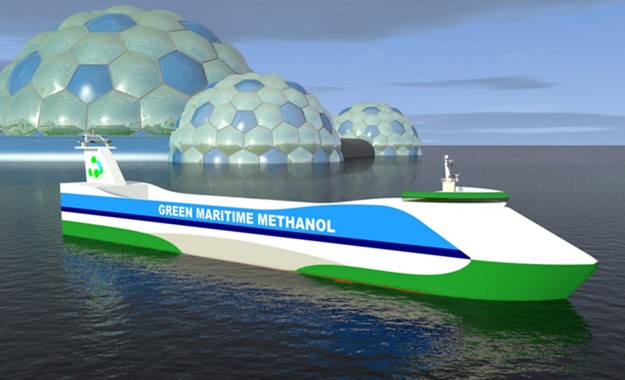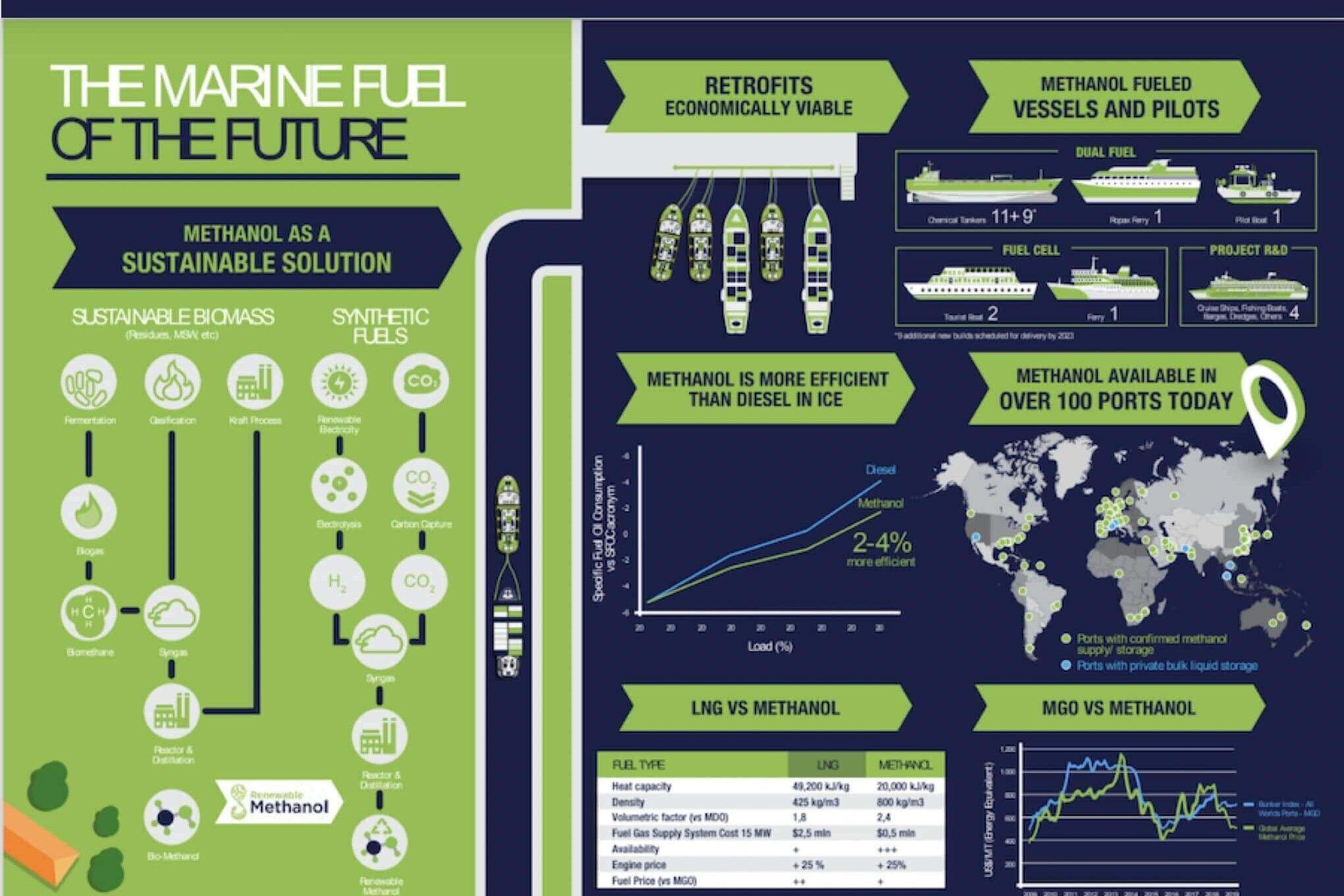The Promising Horizon: Methanol-Fueled Ships in the Commercial Maritime Industry

In recent years, the maritime industry has been seeking innovative solutions to address its environmental impact and reduce greenhouse gas emissions. Among the array of alternative fuels, methanol has emerged as a frontrunner, holding the potential to revolutionize the way ships operate and navigate our oceans. As we move toward a more sustainable future, methanol-fueled ships are poised to play a pivotal role in shaping the commercial maritime industry.
The Case for Methanol: Environmental and Economic Advantages
Methanol, a colorless alcohol-based liquid, has gained traction as a clean-burning fuel source for marine vessels due to its promising environmental and economic benefits. When compared to traditional marine fuels, such as heavy fuel oil or diesel, methanol combustion releases significantly fewer harmful pollutants, including sulfur oxides , nitrogen oxides , and particulate matter. This reduction in emissions aligns with the International Maritime Organization’s (IMO) stringent regulations aimed at curbing air pollution and mitigating climate change.
Beyond emissions reductions, methanol production can be derived from a variety of sources, including natural gas, biomass, and even carbon dioxide recycling. This versatility reduces dependency on fossil fuels and provides the industry with a more diversified and sustainable energy supply chain. Moreover, methanol’s energy density and ease of storage make it a viable option for long-haul shipping, addressing concerns about range and efficiency.

Pioneering Initiatives and Research
The adoption of methanol as a maritime fuel is not a distant dream; it is rapidly becoming a reality. Several pioneering initiatives and research projects have showcased the potential of methanol-fueled ships. One notable example is the world’s first methanol-powered containership, the “Mari Jone,” which embarked on its maiden voyage in 2016. This historic journey demonstrated the feasibility of using methanol as a primary fuel source and laid the foundation for further exploration in this field.
Research efforts have also been directed toward optimizing methanol engines and propulsion systems. Methanol’s combustion characteristics differ from traditional fuels, necessitating innovations in engine design and fuel delivery systems. Collaborations between maritime companies, engine manufacturers, and research institutions have yielded significant progress in this area, ensuring the efficient utilization of methanol as a marine fuel.
Challenges on the Horizon
While the potential benefits of methanol-fueled ships are compelling, several challenges must be addressed to ensure a successful transition. Infrastructure is a critical concern. Establishing a global network of methanol refueling stations is essential to support the widespread adoption of this fuel. Governments and industry stakeholders need to collaborate to invest in the necessary infrastructure, including storage, transportation, and distribution facilities.
Cost considerations also play a role. Currently, the production and storage of methanol are more expensive compared to traditional fossil fuels. However, economies of scale, advancements in production technology, and increasing demand could drive down costs over time. Government incentives and policies that promote the adoption of alternative fuels could further accelerate the competitiveness of methanol in the maritime sector.
Navigating Toward a Sustainable Future
The future of methanol-fueled ships in the commercial maritime industry holds promise. As regulatory pressures continue to mount and environmental concerns gain momentum, the industry is seeking innovative solutions that balance economic viability with ecological responsibility. Methanol’s ability to significantly reduce emissions and offer a pathway to sustainable energy aligns perfectly with these aspirations.
Incorporating methanol as a marine fuel is not a standalone solution but part of a broader strategy to decarbonize the shipping industry. Hybrid systems that combine methanol with other alternative fuels, such as hydrogen or ammonia, could further enhance efficiency and reduce emissions. These integrated approaches leverage the strengths of various fuels to create synergistic solutions that cater to the diverse needs of different types of vessels and routes.
Conclusion
The commercial maritime industry is on the cusp of transformation, and methanol-fueled ships are poised to be at the forefront of this evolution. Their potential to reduce emissions, enhance energy security, and drive sustainable development underscores their importance in shaping the industry’s future. While challenges remain, collaborations between stakeholders, advancements in technology, and favorable policies will play crucial roles in accelerating the adoption of methanol as a viable and eco-friendly maritime fuel. As we sail toward a more sustainable horizon, methanol’s significance cannot be overstated in propelling the maritime industry into a cleaner and greener era.
Click here to join our Telegram chanel
You will get information, news, and support related to Merchant Navy.
